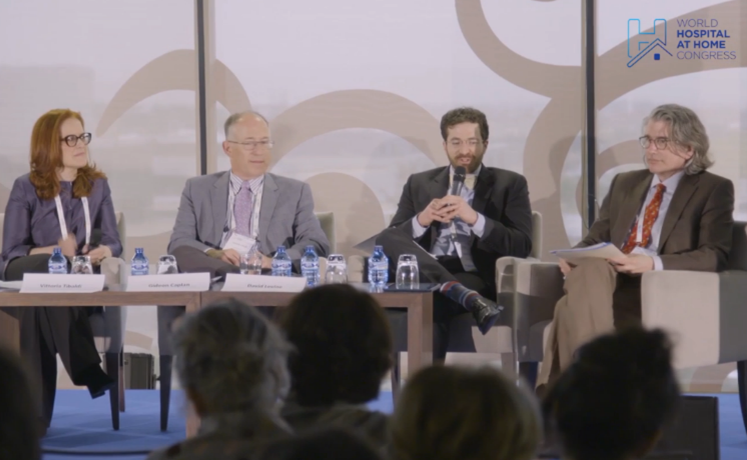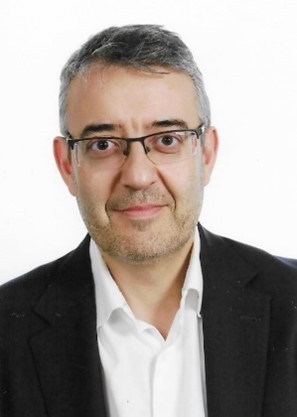BY the new whahc committee co-chair Dr. Manuel MiRóN - WEDNESDAY, 9 FEBRUARY 2021

Over the last few years, there has been a growth in Hospital at Home (HaH), both in terms of the number of units and services and the interest in its progressive implementation in healthcare organizations and national health systems. In some countries, the coronavirus pandemic has given a notable boost to this model of care. Although the reasons for this development during the pandemic are more related to the management of resources to avoid hospital collapse than to a determined intention to improve the quality of care for patients and their families, there is no doubt that the role of the HaH has served both purposes.
However, the creation of HaH services is a process that requires planning and the availability of professionals with specific training. HaH is not a medical speciality, but the knowledge required for its implementation is drawn from several such specialities. There is a core of generalist or hospitalist knowledge in HaH professionals, which is why the most common specialists practising this modality of care are internists, family doctors and geriatricians. However, competencies in pharmacology, postoperative care and palliative care, among others, are also required. The use of technological devices and resources specifically developed for the outpatient and home care setting is another of the training challenges faced by HaH healthcare staff. In addition, chronicity care, continuity of care and coordination functions between care levels are aspects in which HaH professionals need to acquire specific skills.
Many of the training needs discussed for physicians also apply to nurses and other professionals working in HaH services. Nurses are more accustomed to applying their skills and competencies in a cross-cutting manner. However, there is a wide field of training in communication skills and management of autonomy in decision-making, which in the field of HaH are particularly relevant for this group.
Training in competencies for the management of HaH services and units deserves special mention. Those responsible for these services often have to analyse efficiency, quality and cost results, and this requires them to be familiar with concepts and terminology specific to healthcare management.
Despite the fact that training is essential to provide quality care, there are few specific training initiatives for HaH. Many of the training needs of HaH professionals are acquired through the study of various disciplines, but these are not adapted to the circumstances of health care at home. One example is the treatment of infectious processes. When such treatment is performed in the HaH, in addition to general knowledge of infection management, knowledge of physico-chemical properties of antimicrobials, choice and types of vascular catheters, infusion devices, etc. is required. Specific procedures for home transfusions, chemotherapy, palliative care, etc. are also needed when medicine is practicing at home.
Current HaH training initiatives are scarce and generally confined to national settings. Much of the training is provided through scientific societies and this is another limitation for HaH; few countries have scientific societies for HaH and in those that exist, there is no specific training programme.

Since the constitution in 2019 of the World
Hospital at Home Community (WHAHC), an opportunity has opened up for the development
of HaH training proposals at an international level. An agreed training
programme would provide many benefits to the Community, including moving
towards a common HaH model. At present, there is considerable heterogeneity in
the provision of HaH services between and within countries. Having a common
training programme would be one way to establish the core knowledge base for
HaH clinical practice.
An additional benefit for practitioners would
be international recognition of the training programme through prestigious
academic or scientific institutions. Although such certification may not be
valid in public employment selection processes, it would undoubtedly represent
an advance in the qualification of HaH professionals and, consequently, in the
quality of clinical practice.
The approach to an international HaH training programme requires, first, a participatory process for a situation analysis and the collection of proposals. This process should be used to design the training plan and, subsequently, to establish a plan for its implementation. Scientific leadership and a high-level organisational framework should support this. The WHAHC has only been in existence for a short period of time, but it represents a magnificent opportunity to advance towards a model of HaH that will be a reference for professionals and a guide for those who are joining a healthcare practice that in a few years' time will form part of the service portfolio of all healthcare organisations.
The future of HaH is in our hands. All of us who form part of the WHAH Community must feel that we are protagonists in its expansion, but we must also take responsibility for ensuring that this growth is carried out in accordance with standards that guarantee maximum efficiency and quality in the provision of the service. Ultimately, we owe it to the patients and their families, and they will be the ones who will reveal to us whether or not we have achieved this goal with mastery.

ABOUT THE AUTHOR

Internal Medicine specialist. President of the Spanish Society of Hospital at Home. Head of the Home Hospitalization Service, Torrejón University Hospital. Coordinator of the Hospitalization and Telemedicine Working Group of the Spanish Society of Internal Medicine. Master in Management of Clinical Units. University Expert in Health Management. Coordinator of the Spanish OPAT Registry. Member of the Steering Group of the national strategic plan for Home Hospitalization 2020. Author of books and national and international publications. Speaker and moderator in forums and scientific events. Tutor professor at the Francisco de Vitoria University. Director of several postgraduate training activities.